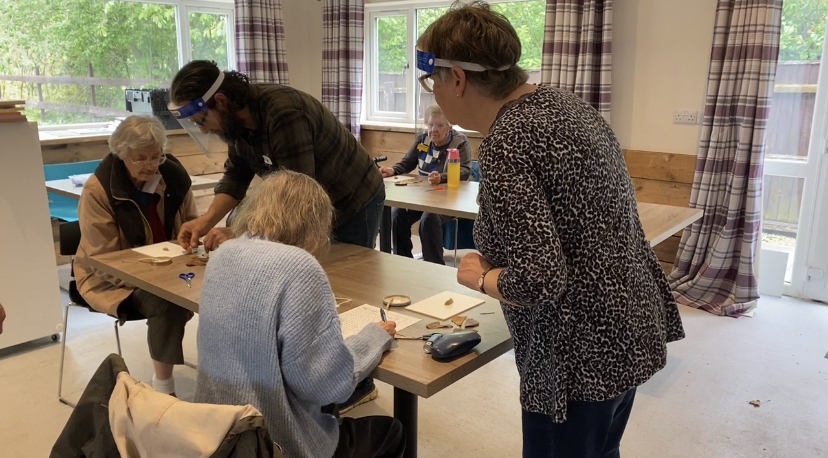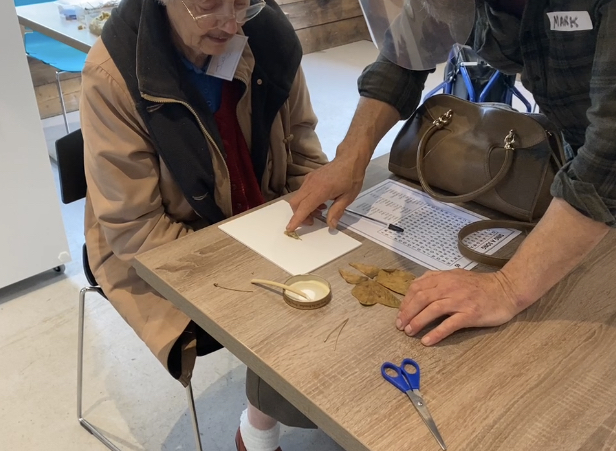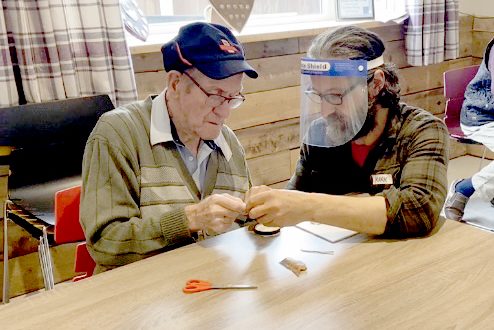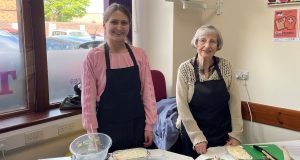A local charity and arts group is continuing to build relationships that benefit older people and those with dementia in South Holland.
This week is Dementia Awareness Week and to mark it, Transported Arts has teamed-up with South Holland’s Tonic Health.
Artists have held the first of several sessions throughout the week at the charity’s Tonic 44 centre in Surfleet, where dementia patients have the opportunity make their own creations.
The first session, which was held on Tuesday, was entitled Fantastic Beasts and How To Make Them and utilised a variety natural items such as sticks, leaves and fungi to create a range of objects.
Artist Mark Steadman was on hand to help the group members with their fantastic creations throughout the event.
Rachel Bryant, of the University of Lincoln, which oversees Transported Arts said: “The group took inspiration from nature and used a range of natural objects to make lovely ‘beasts’.”
Other sessions are set to be held in monoprinting, collagraphs (a printing technique) dry point and pottery.

They follow a recent session where artists spoke to the Dementia Group about certain objects before members created a poem about how each individual reacted to the items.
Tonic Health’s Jean Gifford said: “It was a lovely session and it was interesting to see how people reacted to the objects.”
To coincide with Dementia Action Week, 17-23 May, NHS Lincolnshire CCG is urging anyone who is worried about their memory, or thinks they may have dementia, to see their GP.
The same advice applies equally if you are concerned about someone else’s memory problems, and getting a diagnosis gives the best possible chance to prepare for the future. With treatment and support from healthcare professionals, such as your GP, as well as from family and friends, many people with a dementia diagnosis are able to lead active and fulfilling lives.

“Not all memory problems are caused by dementia, so it is really important to seek help to ensure you are appropriately investigated and diagnosed,” explains Dr Lindsay Bomford, GP and Locality Clinical Lead for Dementia, NHS Lincolnshire CCG. “The prospect of a dementia diagnosis can be frightening and many people opt to wait before getting help for dementia symptoms, but the benefits in seeking early help are far reaching and increase the earlier they are diagnosed.”
Although there is currently no cure for dementia, in many cases medication can help to slow its progression and improve symptoms. In addition, people and their carers can receive support and may be eligible for benefits. Being diagnosed whilst a person still has the capacity to make decisions allows them to direct what they want their future to look like.
“We know that in Lincolnshire we have a large number of people who are living with dementia but have not been formally diagnosed and therefore do not have access to the care and support they, and their family and/or carers, need. We also know that, inevitably, the rate of diagnosis nationally has reduced significantly during the covid pandemic, and this is the case in Lincolnshire too.
“I cannot emphasise enough the importance of getting an early diagnosis, particularly since it usually presents an opportunity for that person to get their affairs in order and to think about appointing Powers of Attorney for their health and financial affairs,” adds Dr Bomford. “Over the last year we have all had to get used to accessing our GPs in different ways for some things, but for a dementia diagnosis it is really important to see your GP in person – we are available and we want to see you.”
Patients in Lincolnshire can also benefit from the Dementia Support Service, from the point at which they are referred by their GP to a memory clinic. There is also the Admiral Nurse Service, which is a team of specialist dementia nurses who provide care for people and their carers who have more complex needs, and people with mild and moderate dementia can also benefit from cognitive stimulation therapy.
For more information on how to get a dementia diagnosis visit www.nhs.uk/conditions/dementia/diagnosis/?tabname=symptoms-and-diagnosis and for more information on Dementia Action Week 2021 visit www.alzheimers.org.uk/get-involved/dementia-action-week
 The Voice of Spalding and South Holland
The Voice of Spalding and South Holland




